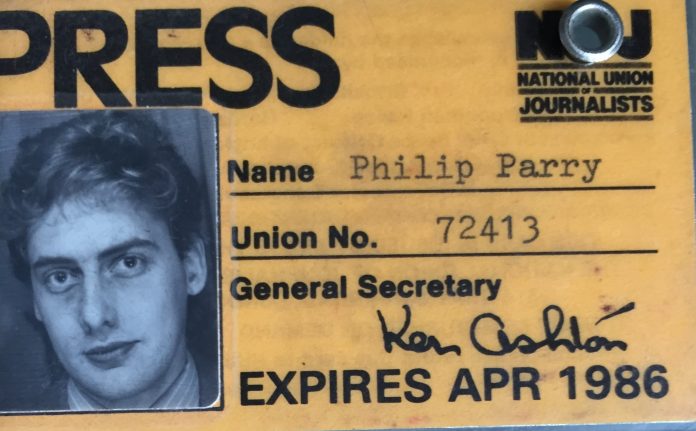- ‘Lies, damned lies etc…’ - 13th February 2026
- Missing in action - 12th February 2026
- Travel news again - 11th February 2026

After examining why Wales is the least ethnically diverse of any region or country in the British Isles, here our Editor Phil Parry looks at how a history of slavery and racism is thankfully less prominent than elsewhere.
In the past he has described how he was helped to break into the South Wales Echo office car when he was a cub reporter, recalled his early career as a journalist, the importance of experience in the job, and making clear that the ‘calls’ to emergency services as well as court cases are central to any media operation.
He has also explored how poorly paid most journalism is when trainee reporters had to live in squalid flats, the vital role of expenses, and about one of his most important stories on the now-scrapped 53 year-old BBC Cymru Wales (BBC CW) TV Current Affairs series, Week In Week Out (WIWO), which won an award even after it was axed, long after his career really took off.

Phil has explained too how crucial it is actually to speak to people, the virtue of speed as well as accuracy, why knowledge of ‘history’ is vital, how certain material was removed from TV Current Affairs programmes when secret cameras had to be used, and some of those he has interviewed.
Earlier he disclosed why investigative journalism is needed now more than ever although others have different opinions, and how information from trusted sources is crucial at this time of crisis.
On the whole the Welsh are lucky.
Unless you count ‘colonisation’ of Wales by the English, a past of slavery and endemic racism has not been as much of a feature of the country’s history as in many others around the world.

This is NOT to underplay the discrimination which has affected black people in Wales.
A recent opinion poll found that nearly three quarters of people in Wales who identify as black or from an ethnic minority background, have personally experienced racial abuse.
The poll found that 63 per cent of black and minority ethnic people thought the police had a culture of racism – while 54 per cent thought that was true of schools in Wales.
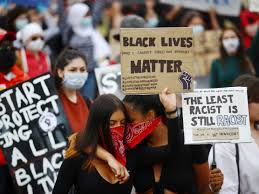
Fifty four percent also thought the UK Government was culturally racist, 35 per cent thought that was the case with the Welsh Government (WG) as well, while 50 per cent saw a racist culture in television and radio and 59 per cent in newspapers.
A common form of racism experienced by black and minority ethnic people was being asked where they were ‘really’ from, and 66 per cent said it had happened to them, either regularly or occasionally, while 30 per cent said they thought racism had affected their mental health.

Even so it could be worse.
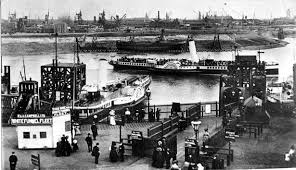
The capital city of Cardiff was built mainly as a coal exporting port, not on the back of the slave trade as was Liverpool and Bristol.
Racism and slavery are, in effect, celebrated with the ‘confederate’ or ‘dixie’ flag in America.
The row today about statues (either pulling one down in Bristol or keeping another in place in Oxford) masks the fact that protesters say it is ‘celebrating’ those who have endorsed slavery, while supporters of the statues say you cannot ‘airbrush’ events out of history, and another panel could be attached spelling out the other point of view.
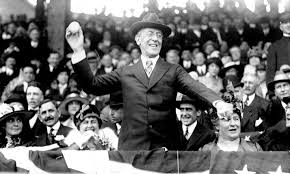
This argument however does not explain why in America many of the statues of Confederate generals on horseback show them in a ‘heroic’ pose.
The former President there, Woodrow Wilson, was one of the most important figures at the Versailles peace treaty in 1919 which made sweeping changes after the first world war, and he was feted by people in continental Europe.
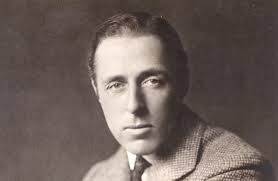
Yet he was also an unadulterated racist who thought black people belonged to an inferior race, and the appalling film which spawned the Ku Klux Klan DW Griffith’s Birth of a Nation, was the first one to be screened at the White House during his tenure.
Anti-Semitism was also rife then.


Indeed the founder of the Welsh nationalist party Plaid Cymru, Saunders Lewis, almost certainly held repugnant anti-Semitic views, and was sympathetic to European fascism.
“It’s a low, churlish thing to slur a man by calling him a Jew”, he wrote in Y Ddraig Goch in 1926

In September 2014 it was stated in the publication of the think-tank Institute of Welsh Affairs (IWA): “Lewis may or may not have been what some have called a ‘salon anti-semite’ that is one who has personal racial prejudice against Jews expressed privately”.
But it is exactly this kind of past which is mostly ignored by the mainstream media.

The worst part of Wilson’s record as US President, for example, was his overseeing of the resegregation of multiple agencies of the federal government, which had been surprisingly integrated as a result of Reconstruction decades earlier.
Yet the mainstream media is largely silent on this issue.
More recently this awful event was underlined by the racism of the present incumbent Donald Trump – who has now thankfully been defeated, with the US supreme court unanimously rejecting a completely baseless lawsuit filed by Texas trying to overturn the result.
Trump outrageously questioned whether Barack Obama was a ‘true American’, he publicly criticised the family of a Muslim-American soldier killed in action, he praised the “very fine people” who were in fact neo-Nazis marching in Charlottesville, he banned Muslims from entering America, he fulminated against “shit-hole” countries which were, of course, black, and he had a peaceful Black Lives Matter protest outside the White House, violently dispersed.
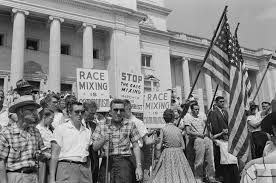
These were just some of the things Trump did too!
Slavery (in the traditional sense) officially ended far later in America than it did in the UK.
Easily in living memory, racist ‘Jim Crow’ laws were still enshrined in statute in some deep south states.
Black people were not allowed to sit on certain seats in buses or in coffee bars, they were not allowed to swim in ‘whites-only’ pools, and they could only be educated in some schools.
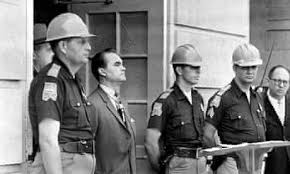
Indeed the entire society in states like Mississippi was segregated, and it took the sending in of troops to change things.
At least we have nothing like that in Wales.
Not yet anyway…
 Tomorrow – more alarming revelations about the troubles at Wales’ biggest airport.
Tomorrow – more alarming revelations about the troubles at Wales’ biggest airport.
The memories of Phil’s astonishing 37-year award-winning career in journalism (when at the beginning racism was even worse) as he was gripped by the rare neurological disabling condition Hereditary Spastic Paraplegia (HSP), have been released in a major book ‘A GOOD STORY’. Order the book now!








